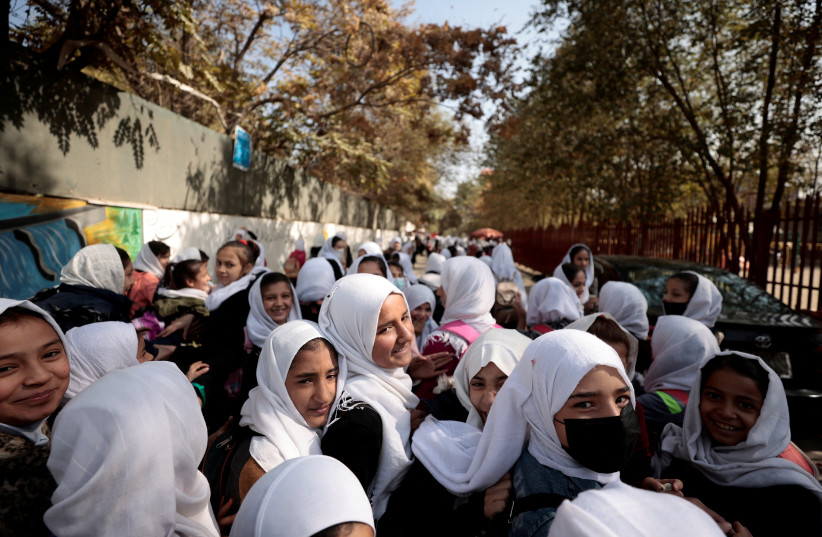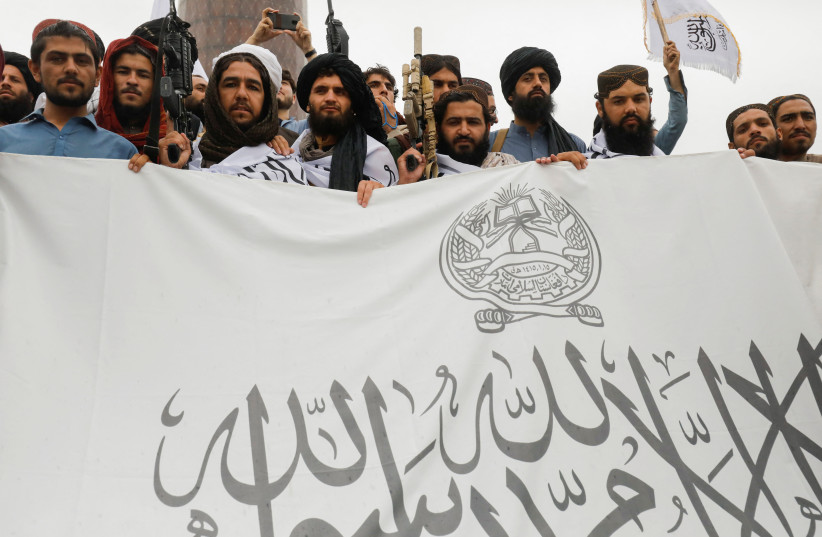A bomber targeted an Afghan girls’ school on Friday, murdering more than 20 people, according to reports. Photos posted online after the attack show children crying and waiting to see their siblings, who were killed and wounded. Another post shows all the girls who were victims.
This is the most recent attack against the minority Hazara Shi’ite community in the country since the Taliban took over. The Taliban were backed by Qatar and Pakistan and have generally been rooted in Sunni followers. In the past, Shi’ites have been persecuted under Taliban rule. Countries that back the Taliban generally persecute religious and ethnic minorities.
The attack in Kabul wounded 27 and killed at least 20 girls, according to reports. The attacker purposely targeted the girl’s section of the school, according to witnesses. One person was quoted saying that students were crammed into a classroom preparing for an exam.
Amnesty condemns attack as West stays silent
While most Western media have ignored the attacks, Amnesty International did put out a statement.
Responding to the reports of a suicide bomb attack that has left dozens dead and many more injured at an educational center in the predominantly Hazara Shiite community area of Dasht-e- Barchi in Kabul today, Samira Hamidi, Amnesty International’s South Asia Campaigner, said:
“Today’s horrific attack is just the latest in a series of attacks in areas dominated by the minority Hazara Shi’ite population and a shamefaced reminder of the inaptitude and utter failure of the Taliban, as de-facto authorities, to protect the people of Afghanistan. Urgent steps must be taken to ensure the safety of all people under the Taliban’s rule, especially the members of minority communities.”
Targeted attacks against mosques have become normal since the Taliban took over the country a year ago. The attacks almost all target minority Shi’ites. This appears to be a form of Islamophobia brought on by far-right Sunni extremist groups. Some have blamed Islamic State or similar groups. ISIS was responsible for genocide against Shi’ites and Yazidis in Iraq in 2014 and also ethnic cleansing of Christians in Mosul and attacks on Christian churches across Syria and Iraq in 2014 and 2015.

Attacks on mosques in Afghanistan
IN A PREVIOUS attack in April, “a Taliban official says a bombing at a mosque and religious school in northern Afghanistan on Friday killed at least 33 people, including students of a religious school.” Notice that the attack, like the one on September 30, also occurred on a Friday. These groups often target Muslims at Friday prayers, knowing that people will be gathered in one place.
The April attack took place in the town of Imam Saheb, in Kunduz Province. “No one immediately claimed responsibility for the bombing, but Afghanistan’s Islamic State affiliate on Thursday claimed a series of earlier bombings, the worst of which was an attack on a Shi’ite mosque in northern Mazar-e-Sharif that killed at least 10 of Afghanistan’s minority Shi’ite Muslim worshippers and wounded scores more,” PBS reported.
In April, another attack occurred in Kabul that killed six and wounded 11. That attack also included suicide bombers, according to an article posted at Relief Web. “Two IEDs were detonated outside Abdul Rahim Shahid high school, located in the predominantly Hazara neighborhood of Dasht-e-Barchi, while students were leaving their morning classes. Casualties are expected to rise, as the severely wounded die and official numbers of those injured in the attack are announced. There was no immediate claim of responsibility for the attack, though the Islamic State and other Sunni militant groups have frequently targeted Shia Hazara communities in Afghanistan.”
According to that article, “in May last year (2021) three bombs went off outside a girls’ school in Dasht-e-Barchi, killing at least 95 people and wounding 240 more, many of whom were young students.”
The target: Shi’ite religious minority in Afghanistan
These attacks appear to have a systematic process behind them; they all target the Shi’ite religious minority who are also members of the Hazara ethnic minority. They frequently targeted religious and educational centers and children.
The Taliban rule has increased the ability of the attacks to operate in Afghanistan. There have been no major attacks like this on Afghan security personnel, or on other communities, so it appears these attacks are enabled by the authorities and the states that back the Taliban.
Video from the center before the attack on Friday shows a room full of girls who wanted an education. The Taliban has persecuted women and kept girls from schools. With women’s rights and protests in Iran now part of the international consciousness, it is clear that the Taliban’s war on women – and the massacre of girls at school – now contrasts with the way Iranians have risen up against theocratic rule across the border.

Whether the protests in Iran will influence Afghanistan is unclear, but the regimes in Kabul and Tehran, as well as their backers in Pakistan, Qatar and other countries, likely are concerned to see protests sweeping Iran. In addition, fighting in Balochistan in Iran between locals and Iranian security forces could influence Pakistan and Afghanistan because it took place in an area near the border of the three countries.
